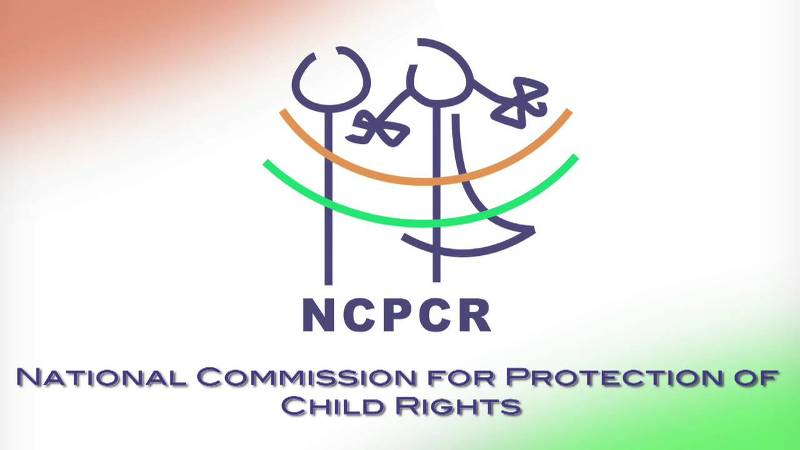Description

Copyright infringement not intended
In News
- The National Commission for the Protection of Child Rights (NCPCR) has released draft guidelines to ensure the protection of children within the entertainment industry.
- In 2011, the commission has released a “Guidelines to Regulate Child Participation in the Entertainment Industry”.
- The released draft expands the coverage of the guidelines to cover social media and OTT platforms.
Key Points of the Guidelines
- Strict penal provisions for violating the guidelines, including imprisonment.
- Mandatory for child artists working in the entertainment industry to get register with District Magistrates.
- The guidelines are also applicable on OTT platforms.
- Parents of the children have to be held accountable.
- Provisions under the Juvenile Justice Act, 2015, Child Labour Amendment Act, 2016, Protection of Children from Sexual Offences Act, 2012, Information Technology (Intermediary Guidelines and Digital Media Ethics Code) Rules, 2021, etc., have been included in the present draft guidelines.
- The guidelines prohibit children from being cast in roles or situations that are inappropriate.
- The production Unit must consider the child’s age, maturity, emotional or psychological development and sensitivity.
- A child cannot be exposed to mockery, insult or discouragement, harsh comments or any behaviour that could affect his/her emotional health.
- A Child cannot be shown consuming alcohol, smoking or using any other substance.
- No child can be engaged in any situation involving nudity.
- At least one parent or legal guardian or a known person needs to be present during a shoot.
- For infants, a registered nurse needs to be present along with the parent or legal guardian.
- Every person involved in the production or who may be in contact with child artists will have to submit a medical fitness certificate ensuring that they are not carrying any contagious disease and police verification of the staff also needs to be carried out.
- The producer also needs to ensure that;
- The child’s education under the RTE Act,
- No discontinuity from school.
- Adequate and nutritious food and water for the children.
- Medical facilities.
- A child can only participate in one shift per day, with a break after every 3 hours.
- At least 20 % of the income earned by the child shall be directly deposited in a fixed deposit account in a nationalised bank in the name of the child which may be credited to the child upon attaining a Maturity.
About National Commission for Protection of Child Rights
- The National Commission for Protection of Child Rights (NCPCR) is a statutory body established under the Commission for Protection of Child Rights (CPCR) Act, 2005.
- It is under the administrative control of the Ministry of Women and Child Development.
- Under the act, a Child is defined as a person in the 0 to 18 years age group.
- It aims to ensure that all Laws, Policies, Programmes, and Administrative Mechanisms are in harmony with the Child Rights perspective as enshrined in the Constitution of India and also the UN Convention on the Rights of the Child.
- Composition: This commission has a chairperson and six members of which at least two should be women.
- All of them are appointed by the Central Government for 3 years.
- The maximum age to serve in commission is 65 years for Chairman and 60 years for members.
- The salary and allowances payable to, and other terms and conditions of service of, the Chairperson and Members, shall be such as may be prescribed by the Central Government.
Functions of the National Commission for Protection of Child Rights;
- Examine and review the safeguards provided for the protection of child rights and recommend measures for their effective implementation.
- Inquire into child rights violations and recommend initiating proceedings in such cases.
- Examine all factors that curb the enjoyment of rights of children affected by terrorism, communal violence, riots, natural disaster, domestic violence, HIV/AIDS, trafficking, maltreatment, torture and exploitation, pornography and prostitution and recommend appropriate remedial measures.
- Look into the matters relating to the children in need of special care and protection including children in distress, marginalized and disadvantaged children, children without families and children of prisoners and recommend appropriate remedial measures.
- Study treaties and other international instruments and undertake periodical review of existing policies, programmes and other activities on child rights and make recommendations for their effective implementation in the best interest of children.
- Undertake and promote research in the field of child rights.
- Spread child rights literacy among various sections of society and promote awareness of the safeguards available for the protection of these rights through publications, the media, seminars and other available means.
- Inspect or cause to be inspected any juvenile's custodial home, or any other place of residence or institution meant for children, under the control of the Central Government or any State Government or any other authority.
- Inquire into complaints and take suo moto notice of matter relating to:
- Deprivation and violation of child rights.
- Non-implementation of laws providing for the protection and development of children.
- Non-compliance with policy decisions, guidelines or instructions aimed at mitigating hardships and ensuring the welfare of the children and providing relief to such children.
- Such other functions may consider necessary for the promotion of Child Rights.
- The Commission shall not enquire into any matter pending before a State Commission or any other Commission duly constituted under any law for the time being in force.
- Present an annual report to the Central Government and at such other intervals as the Commission may deem fit.
- Compile and analyze data on children.
https://epaper.thehindu.com/Home/ShareArticle?OrgId=G989V9IOS.1&imageview=0
1.png)
https://t.me/+hJqMV1O0se03Njk9













